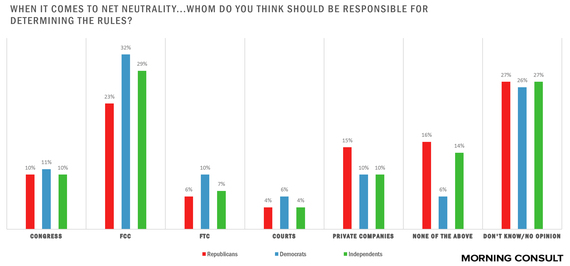President Obama may not have hit the record number of mentions of the word "innovation" compared to his 2014 State of the Union, but he highlighted pro-innovation priorities like trade and open Internet access and fast networks. These will grow innovation with the platforms and markets innovators need.
Open access to a fast Internet is an economic and innovation issue. This point was made clear at Congressional hearings this week in Congress. For companies like Etsy, Dwolla and thousands of others who rely on open connectivity, its a prerequisite for conducting business -- and even for raising capital at the outset. When start-up companies approach investors they have to list potential liabilities. No investor wants to lend money to a company that could fail if an Internet access provider could easily offer a special deal to their competitor but not to them.
Clear predictable rules from the FCC will be welcomed by businesses, and that is why so many have urged the FCC to stand up to narrow special interest politics and move forward with strong open Internet rules that protect consumers' and businesses' Internet access.
Etsy mentioned at the hearings that 30,000 of the micro-businesses it represents have asked the FCC to use its Title II telecommunications authority for its Open Internet rules.
With some in Congress are trying to preempt an FCC decision, we are concerned about the role of partisan politics and misinformation that is proliferating.
Several times at the Senate and House hearings, and in the weeks leading up to them, members of Congress ranted against the FCC regulating the Internet -- when that is clearly not under consideration at all. The FCC is proposing only to adopt basic safeguards to protect access to the Internet, but is not considering regulating the Internet itself.
This is an important point. The Internet is comprised of a vast backbone and transit networks that are highly competitive, millions of content providers, end-users and their contributions. Internet access is controlled by a small subset of dominant Internet access providers. The FCC is seeking to prevent Internet access providers from abusing their power. And it seems poised to take this light touch regulatory measure to protect consumers access to communications as it has been asked to do by millions of Internet users and businesses.
It is not surprising that the biggest Internet access providers in the cable and telecom industries oppose Open Internet rules. They want the freedom to use their power to erect "toll booths" to collect new access charges.
Many of us believe that charging access tolls when actual customers are already paying for two way connectivity would be abusive. Few would even try to argue that next generation innovators would not be at risk from larger competitors who have paid for faster delivery while the innovator's customers would face delays in accessing their new services. Likewise, without a ban on paid prioritization, IAPs would be able to favor their own affiliated and competing video or cloud services.
So from an economic standpoint what Congress and all of us need to remember is that weak, unenforceable, or loophole riddled Open Internet rules might benefit a few legacy companies -- but would limit our economic future. It is unwise to allow barriers to be erected blocking the next generation of companies that can be the economic driver of jobs. Preventing the FCC from requiring Internet access providers to follow basic nondiscrimination rules that benefit small businesses would enable those barriers to flourish.
An interesting poll from Morning Consult conducted this week revealed that more than twice as many Republican voters trusted the FCC more than Congress to determine net neutrality rules. See the graph below from reporter Fritz Burgher's story:
The FCC was the institution Congress created years ago to look out for the public interest in communications network access. They were wise to minimize politics and charge the agency with developing the technical expertise to protect universal access to communications services. Congress would be wise now to let the FCC carry out its mission.
